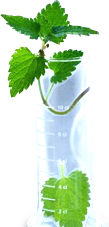



Author(s): Okolie N. Paulinus *, Famiyesin O. Wilson and Uanseoje, O. Sylvester
This study was carried out to investigate the effect of Abelmuschus esculenta, a rich source of viscous fibre, on plasma lipids and activities of some intestinal ATPases in rabbits exposed to potassium cyanide. Two groups of New Zealand White rabbits (4 per group) received mash + 400ppm cyanide, or mash + 400ppm cyanide + 40% A. esculentus for 4 weeks. Members of a third group (control) were fed pure mash. At the end of 4 weeks, the rabbits were sacrificed by cardiac puncture under chloroform anaesthesia, and sections of the colon, duodenum and ileum were dissected out, rinsed in cold physiological saline, and assayed for activities of Na+ -K + -ATPase and Ca2+ -ATPase. In addition, plasma total triglycerides, total cholesterol and HDL-cholesterol were determined. The results showed that cyanide significantly inhibited colon, ileum and duodenum activities of Na+ -K + -ATPase and Ca2+ -ATPase, relative to controls (p? 0.05). However, the cyanide-induced decreases in Na+ -K + -ATPase and Ca2+ -ATPase were reversed in the group that received A. esculentus in addition to cyanide. Moreover, the cyanide treatment brought about significant elevation of plasma triglycerides levels (p? 0.05), but plasma total cholesterol and HDL cholesterol were not significantly affected. The hypertriglyceridemia due to cyanide was significantly reduced in the group that received cyanide and A. esculentus (p? 0.05). These results strongly suggest that A. esculentus has potential for mitigating some of the metabolic consequences of cyanide exposure, such as inhibition of ATPases and hyperlipidemia. This is considered crucial, especially for population routinely exposed to dietary cyanide through cassava and legumes.